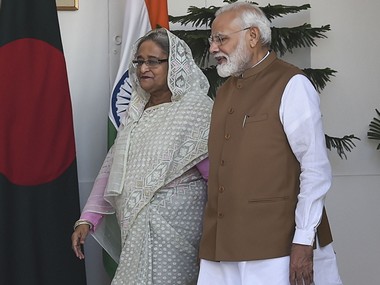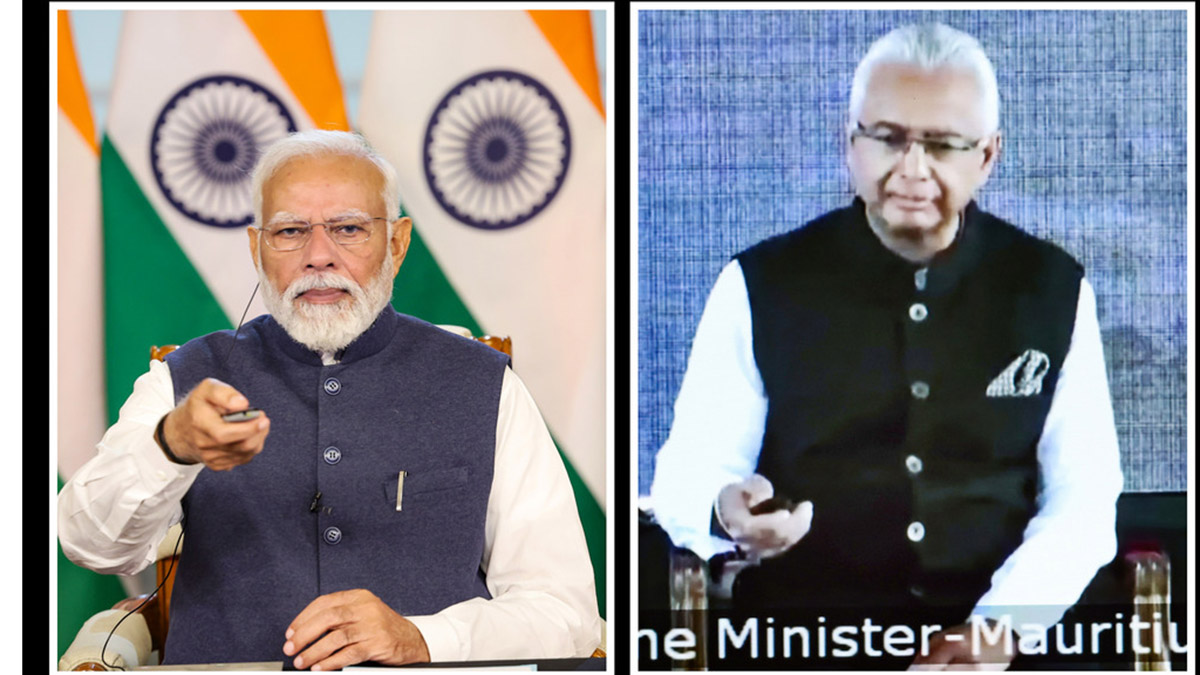The National Register of Citizens (NRC) and the subsequent enactment of the Citizenship Amendment Act (CAA), despite attracting attention, did not initially give rise to much of a reaction in Bangladesh. But with the sudden rise in illegal border-crossing from India since November, that mood is quickly changing. Media coverage has begun to examine the CAA’s impact on Bangladesh, moving from its hitherto primary focus: The situation inside India.
As leading media outlets begin to look at the impact of the CAA on Bangladesh, the country’s most-circulated newspaper Prothom Alo carried a piece last week saying that the CAA will create anxiety and tension in Bangladesh, where “a huge number of the population has been historically anti-India” and “the number is increasing”.
Despite the sudden surge of illegal border-crossing into Bangladesh, Foreign Minister AK Abdul Momen in November said that there was no incident of Indian citizens trespassing into Bangladesh. The authorities have not shown any interest in investigating the matter formally either. Local and foreign media, however, reported that the Bangladesh Border Guard had arrested over 300 people who entered across the border in Jhenidah and Jashore’s Benapole. The detained claimed they were Bangladeshi citizens who were coming back to the country owing to the recent situation in India, where they failed to obtain citizenship. Most of the detainees are Muslims.
Local people said that the actual number that entered is higher than the number of people detained, with locals at the Maheshpur border area claiming that 50 to 100 people have been entering Bangladesh everyday.
The Sheikh Hasina government has been maintaining that the new citizenship law is India’s “internal matter”. And after the final NRC draft was published — which saw 1.9 million people excluded, Momen said that Dhaka has faith in India’s promise that the new citizenship legislation will not affect Bangladesh, but conceded that it will likely become a “bilateral matter” between Bangladesh and India.
However, last week when Bangladeshi journalists asked for his reaction to the Union Home Minister Amit Shah’s comments in the Lok Sabha about the persecution of minorities in Bangladesh, Momen called Shah’s allegations of mistreatment untrue. “It’s not true that torture on minority is taking place in Bangladesh,” he was quoted as having told reporters.
Most recently, on Monday, Momen told journalists in Bangladesh that Dhaka has asked for information about any Bangladeshis illegally living in India, assuring New Delhi that it will take back any illegal immigrants through the proper procedure.
Anti-India sentiments on a ‘sharp rise’
While the government keeps silent about the issue — aside from repeating that the CAA is India’s “internal matter”, political commentators and activists in Bangladesh say that the situation created by the new citizenship law will have far-reaching consequences for Bangladesh, including the dangerous rise of identity politics along religious lines.
Journalist and author Altaf Parvez, who has written a book on the water-sharing dispute between India and Bangladesh, says India is unfairly dragging Bangladesh into its internal issues without any substantive evidence of illegal migration. “I’m not saying there has never been any illegal migration from Bangladesh. But people who migrated to India after Bangladesh’s liberation did so of their own volition. It may be that they loved India and thought it was a better place to live. But it had no connection to communal relations in Bangladesh,” says Parvez.
Shahab Enam Khan, professor of International Relations at Jahangirnagar University says that the Bangladeshi public’s perception of India will only veer towards the negative because of the recent situation. “The anti-India sentiment has increased sharply over the years, largely due to Bangladesh’s foreign policy weaknesses along with the Indian media’s persistent negative projection of Bangladesh as ‘India’s backyard’,” says Khan.
The good bilateral relations that both governments like to advertise, Khan argues, have not benefited Bangladesh equally and reciprocally. For example, he said, the $500 million line of credit for defence from India, among other agreements, may put the country into unnecessary debt. “Given that India itself is one of the largest importers of arms in the world, it’s hard to establish justification to the taxpayers,” he added.
‘Bangladeshis suspect large push-ins’
University of Dhaka law professor and author Asif Nazrul says that the CAA will deeply hurt Bangladesh. “The discussions prior to the promulgation of this Act and the content of this Act have already created deep scars in the minds of Bangladeshi people.” he says. This is particularly so, Nazrul says, because Bangladesh was lumped together with Pakistan and Afghanistan in spite of the far greater religious tolerance of Bangladeshi people and in spite of measures governments have undertaken to safeguard and promote the interests of minority communities.
The Act not only discriminates against the Muslim community, says Nazrul, but also threatens their lives and security in every possible way.
“The Bangladeshi people are also suspicious that all of this is designed to push millions of undocumented Indian citizens into Bangladesh. India does not have any border with Afghanistan, and Pakistan will resist any push-in of India citizens very strongly. Due to the weakness of the present Bangladesh regime, this is the only place that Indian Muslims would flee to. They apprehend that the CAA will hit the country’s economy, social fabric and environment heavily,” he says.
Nazrul thinks such a situation may create short-term uncertainty in government-level relations. “But since the present regime is very much dependent on and loyal to India, it will try to accept the damage quickly. The Bangladesh government may even try to downplay the crisis by keeping the number of people actually pushed into Bangladesh a secret,” he adds.
This issue, he fears, will further enrage the Bangladeshi people who already have deep grievances because of the border-killing, water-sharing, free transit and others issues. “They will try to express their resentment at an opportune time exactly the way the Nepali people have done recently,” opines Nazrul. He is also certain that anti-India feelings are on the rise in Bangladesh.
This, he says is “mostly because of India’s blatant support to two very controversial elections through which this government has continued to retain its power, in spite of its unpopularity due to bad governance, corruption and serious human rights violations. Bangladeshi people generally believe that India has shown its support only to take unilateral advantage of the present government which is ready to give India almost everything in return for India’s role in keeping it in power.”
Fear of losing distinction between Hindutva politics and the liberal spirit of India
Writer and activist Anupam Debashis Roy says, while discussing the perception of India among Bangladeshis, that distinction should be made between ‘pro-Bangladesh’ and ‘anti-India’ sentiments. But this line, he says, has become less clear because of actions of the Narendra Modi government, including its recent enactment of the CAA.
“It is because people are becoming increasingly outraged by the atrocities of the BJP and its cronies that they are mistaking the Indian people for its government. A sense of hatred already exists due to the Indian government’s actions regarding energy, environment, river water-sharing, border tensions and trade relations,” he notes, “And the direct attack on Muslims and labelling them as ‘Bangladeshis’ may make Bangladeshis increasingly view India as their enemy and the sharp distinction between Hindutva-hooliganism and the liberal spirit of India may be forgotten.”
There are reasons why Bangladeshis are increasingly becoming anti-India, says Roy, who came into prominence when his news-satire videos on a host of issues, including videos on Bangladesh-India relations gained attention on social media. “India has strong-armed Bangladesh on many issues, and the Bangladesh government let it happen, leading to a mounting anger towards both the Bangladeshi ruling party and India,” he reasons.
He also warns that this resentment toward India might give rise to identity politics, banking on the view that Indian Hindutva must be countered with a similar force.
“The CAA is fanning the sentiment and encouraging those forces, who now have an ’enemy abroad’ in their sights. This squeezes the space for reformist liberal democrats who cannot use rhetoric as provocatively as those peddling identity politics,” Roy adds.
But he also sees a broader danger. “Not only could the law push thousands of people through the borders of Bangladesh, it will set a precedent in the subcontinent that identity can be the basis of citizenship and that would be dangerous for the region,” he warns, “In this era of sharply identity-based politics, it is easily imaginable that this rhetoric will be copied by many parties across the region. And showing India’s likeness, or showing a need to counter it, these authoritarian illiberal forces will gain strength and power.”
The author is a Dhaka-based journalist


)




)
)
)
)
)
)
)
)